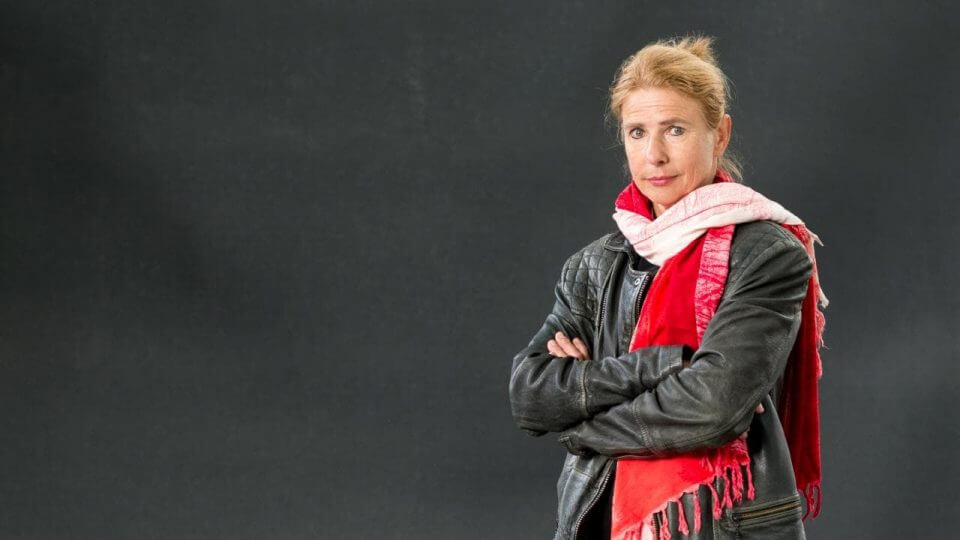
“Writers should be judged first by the quality of the content of their prose, not their identity. If we forget this, then the world of literature will be much poorer, and with the loss of this source of consolation, so will we all.”
Lionel Shriver is the author of books such as We Need to Talk About Kevin and others. Shriver is not afraid to write about difficult and often disturbing subjects. She is also not afraid to raise her head above the parapet on things that she does not agree with. Unfortunately, in these times of perpetual outrage and flaunting of hurt feelings, that is a recipe for trouble. Shriver has feared for some time that her outspoken opinions and her obstreperous attitude to cultural dogmas might land her in hot water; she specifically said in an interview with Ben Domenech that her writing in the Spectator magazine might be what brings the outrage mob down on her. And so it has proved.
On June 9, Shriver wrote a piece in the Spectator about her concerns regarding the publishing industry’s approach to the issue of diversity. Following an email from a colleague, she used a recent letter that outlined a new “company-wide policy” of Penguin-Random House for “both our new hires and the authors we acquire to reflect UK society by 2025” as a case-study for what she believes are the problems with this approach to hiring new employees and selecting new writers. She goes on to quote from the letter: “This means we want our authors and new colleagues to reflect the UK population taking into account ethnicity, gender, sexuality, social mobility, and disability.” She then details the questionnaire that is sent to establish the permutations of the identity of each prospective author or employee to the nth degree.
As a result of her forthright objections to this new policy, Shriver has now been sacked from the panel of the Mslexia literary competition. Mslexia is a magazine for women writers—that is, for those women who take the correct line on the issues of the day. Meanwhile, the finalists of PRH’s diverse WriteNow scheme penned an open letter castigating Shriver for her supposed bigotry, asking, “Does she truly believe that diverse writers are incapable of penning good books? That women of color are incapable of working editorially?” One questions whether they’d actually read the article in question, as Shriver never said people of color were incapable of good writing, nor did she argue that women of color inherently lacked the aptitude for editorial work—quite the opposite, in fact.
On top of this, the most boneheaded responses came from the Guardian. One featured similar arguments from several authors that publishing is too white, too male, and that Shriver was saying that women and people of color couldn’t write or edit. The other argued that diversity was needed because otherwise, Homer, Dostoyevsky, and García Márquez would be unknown. The fact that Homer and Dostoyevsky are two of the greatest writers in human history, and therefore had no need of a quota, seems not to matter.
I, of course, do not believe that one’s identity should be a barrier or disqualification. However, whatever her critics’ reactions to her comments, Shriver’s reservations about this new approach have merit. As she points out, the only kind of acceptable diversity there appears to be is that of immutable characteristics like race, sexuality etc. etc. Christian Butler points out in Spiked magazine that while the publishing industry in Britain is 90.4% white, the population of Britain is 87.17% white according to the 2011 census, so the publishing industry is not even that far off wider society anyway. Added to this, 84.6% of publishing workers are female, so it’s not even like it’s run solely or even mainly by men.
There doesn’t seem to be much consideration about diversity of thought or belief, those things that actually matter in serious book publishing, where it is supposedly ideas that provide the fodder for the books that are chosen and released. As she goes on to say, this reflects the fact that in certain political circles now, diversity has become an extremely narrow set of criteria centered on immutable characteristics. This definition of diversity holds that in order to appease the gods of equity, the oppression pyramid of identity politics must be adhered to at all times, if we are to succeed in our goal to break the structures that keep certain identity groups down.
This hiring of employees and authors based on their skin colour, sexuality, orientation or disability is the introduction of a quota system to the world of publishing under the guise of fairness. As Pascal Bruckner has remarked, this false mask of compassion hides a face twisted with a sneer of contempt. After all, is it not the height of condescension to adopt the position that those from supposedly oppressed groups need a hand-out and a pat on the head from those in positions of privilege?
This narrowing of what it is to be diverse is not only limited to who gets hired, but also to what books are published and by whom, another phenomenon that brought controversy down on Shriver’s head in Australia in 2016. There are now routine furors over who writes what book, and who is considered acceptable to write certain characters. As this article in Vulture details, the trend among younger readers is to target authors and publishing employees and the books they release for wrong-think. This new approach to authors of fiction is particularly pervasive in young-adult fiction, the genre with the most engaged readers on social media. The book The Black Witch was criticised because it portrayed the main character as initially bigoted towards people of color, who then learned the error of her ways during the story. Shauna Sinyard in a 9,000 word review, called it “racist, ableist, homophobic and… written with no marginalized person in mind.” Much of her review consists of quotes of the racist characters saying racist things.
The implication here is that by portraying fictional racist characters, the author is giving these viewpoints approval and legitimacy, thereby contributing to the continuing subjugation of all persecuted groups. This censoring of authors who stray outside the bounds of “acceptable” fiction, covers every sort of perceived bigotry, from ableism, to heterocentrism to white savior narratives. This last was applied to Laura Moriarty’s dystopian novel American Heart, when a white American girl sees through the culturally instilled bigotry against Muslims of her time and rescues a boy her age from an internment camp. Despite her best efforts, the author was still bombarded with criticism for daring to write such a narrative.
The resulting online mob, marshaled by those influencers like Sinyard through Twitter, Tumblr, and Goodreads almost destroys books before they’re released; Kirkus was forced to publish an essay on the difference between representation and endorsement in The Black Witch. This trend towards conformity of opinion on what constitutes “correct fiction” is concerning in itself. Allied with the harassment and castigation authors and those who work in publishing receive, it causes a chilling of creativity and a stifling of the true voice of the writer. This new mentality towards books is the wider public expression of the drive towards conformity of thoughts and ideas that will arguably be the result of the new policies of PRH. If writing—particularly fiction writing—becomes dictated by communal feelings, fragile egos, and over-emotional reactions to any sort of challenging narrative, then no-one will be able to write anything outside of their direct experience.
This will only cause a deeper siloing of the imagination, further entrenching the sense of social isolation prevalent in modern society. Fiction, in particular, can break down barriers between people from different backgrounds; these developments presage a world of words where that is no longer possible. The greatest fiction is universal because it appeals to who we are as people at an impossibly deep level. Rather than objective truth, the aim of this fiction is to strike at the heart of who we are with uncanny accuracy. The true mark of whom we are as human beings is revealed through the construction of narratives that, though created, reflect the realities of us as living beings. The trend towards only writing what one knows based on one’s identity, while also placing that identity at parity or ahead of one’s prose quality will lead to worse writing, not better. All that will happen will, in effect, be the continued atomization of the mind; all that will be written is autobiographical propaganda.
Forgive the personal note: I do not wish to live in a world where my identity means I can only write about disability, or issues relating to this, or have that aspect of my identity be a deciding factor in judging my writing. That would be an impossible existence to contemplate or to endure. Joe Abercrombie, in his Third Law dark fantasy trilogy, created the crippled Inquisitor Glokta, who is one of the most repulsive literary creations in fantasy, if not fiction. Abercrombie would likely not have been allowed to publish such a portrayal as this today. For me, this depiction represents what good writing does best; it shows us what the depths of our human nature is, even though someone that does not match our every characteristic and is supposedly a morally pure person, purged as they are of their internal flaws because of their exterior imperfections. For me, this portrayal of disability was refreshing. I wish for writers to keep writing like this, whether disabled or not.
To repeat, I do not believe someone’s immutable identity should act as a barrier or disqualifier. However, I also believe that one should be judged on talent and qualification alone, whether for the position of editor, writer, or any other position in the publishing world. I believe that job applicants should be judged on the content of their resumes and not any identity marker, in a positive or negative way. Likewise, writers should be judged first by the quality of the content of their prose, not their identity. If we forget this, then the world of literature will be much poorer, and with the loss of this source of consolation, so will we all.
Henry George is a freelance writer living in the UK. He holds an MA in War Studies from King’s College London.










